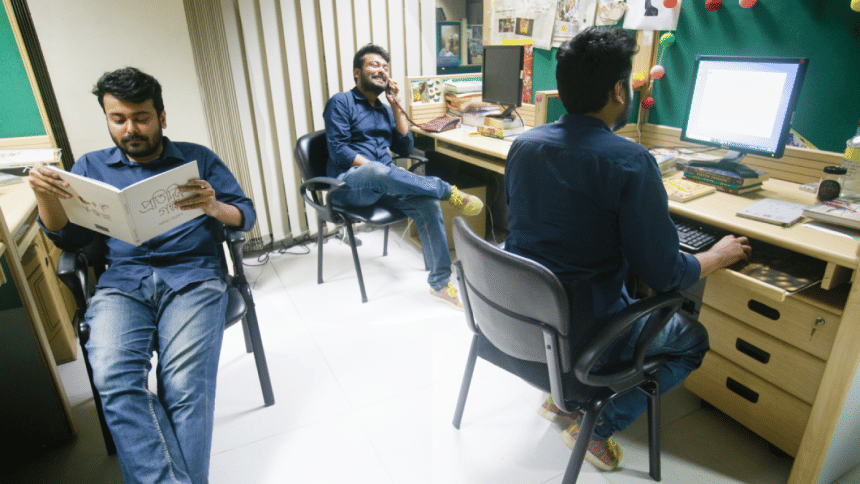Being the Master of (N)one

The term 'jack of all trades' was coined to describe Shakespeare, a playwright who was skilled at managing all aspects of theatre production from direction to set design to costumes. Then how did a phrase linked to one of the greatest writers of all time come to have so many negative connotations?
We tend to see the world through narrow lens, disregarding diversification. Thus, when we see someone having a knack for a particular skill, we tend to force them to go down that path to become better. It may look like specialising on one particular skill is a sure-shot way to having a head start, so, spending time on any other alternative is deemed undesirable.
This demand for hyper specialisation has made it difficult for any integration of the left and right side of our brains. By chasing competency in one field, we are forced into short-sightedness. As a result, we may think we are bad at other things when in reality, we were so focused on one thing that we didn't invest time in developing others.
In the world of sports, however, research shows that while engaging in strict practice causes athletes to reach their peak relatively early, the future looks bleak. Those who sample multiple sports in their early days and delay specialisation go on to become better than the athletes who specialised early. This is because diversification allows a child to develop a variety of motor skills that are transferable between sports, reduces the likelihood of burnout, and helps to become passionate.
The patterns ring true in the case of learning musical instruments as well as a multitude of other creative pursuits.
If you look closely enough, education is no different. In a culture where we are shunned if we have no idea about what we ought to study or do with our lives, we are made to believe that a focused path is likely to bring us success. While those with a career-focused education are likely to get hired quickly because of their expertise and become well paid in the short run i.e. the dream reserved for all Bangladeshi kids, they are also less likely to be adaptable to changing work conditions and the world at large. Flexibility is the biggest advantage to being the jack of all trades, which means we can fill many roles and make observations, specialists often cannot.
What we often fail to recognise is that early specialisation makes poor choices more likely, especially for impressionable teenagers. Here is where well-rounded, holistic education systems get it right. The case for liberal arts education is the belief that a jack of all trades is indeed better than a master of one.
The misguided notion that a 'master of none' is a bad thing has us chasing after specialisation when so many of us do not wish to be pigeonholed. Instead of picking one field and restricting ourselves to certain skillsets, exploring a variety of fields is the key to self-discovery. After all, the entire saying actually says, "a jack of all trades is a master of none, but oftentimes better than a master of one."
References:
1. Forbes (May 13, 2021). Why Being A Jack Of All Trades Is Essential For Success.
2. NSCA (December 2013). Early Sport Specialization Versus Diversification in Youth Athletes.
3. TEDx Manchester (April 2, 2020). How Falling Behind Can Get You Ahead.
Mashiyat Nayeem is mourning the end of online school and the extra hour of sleep. Send her condolences at [email protected]

 For all latest news, follow The Daily Star's Google News channel.
For all latest news, follow The Daily Star's Google News channel. 








Comments